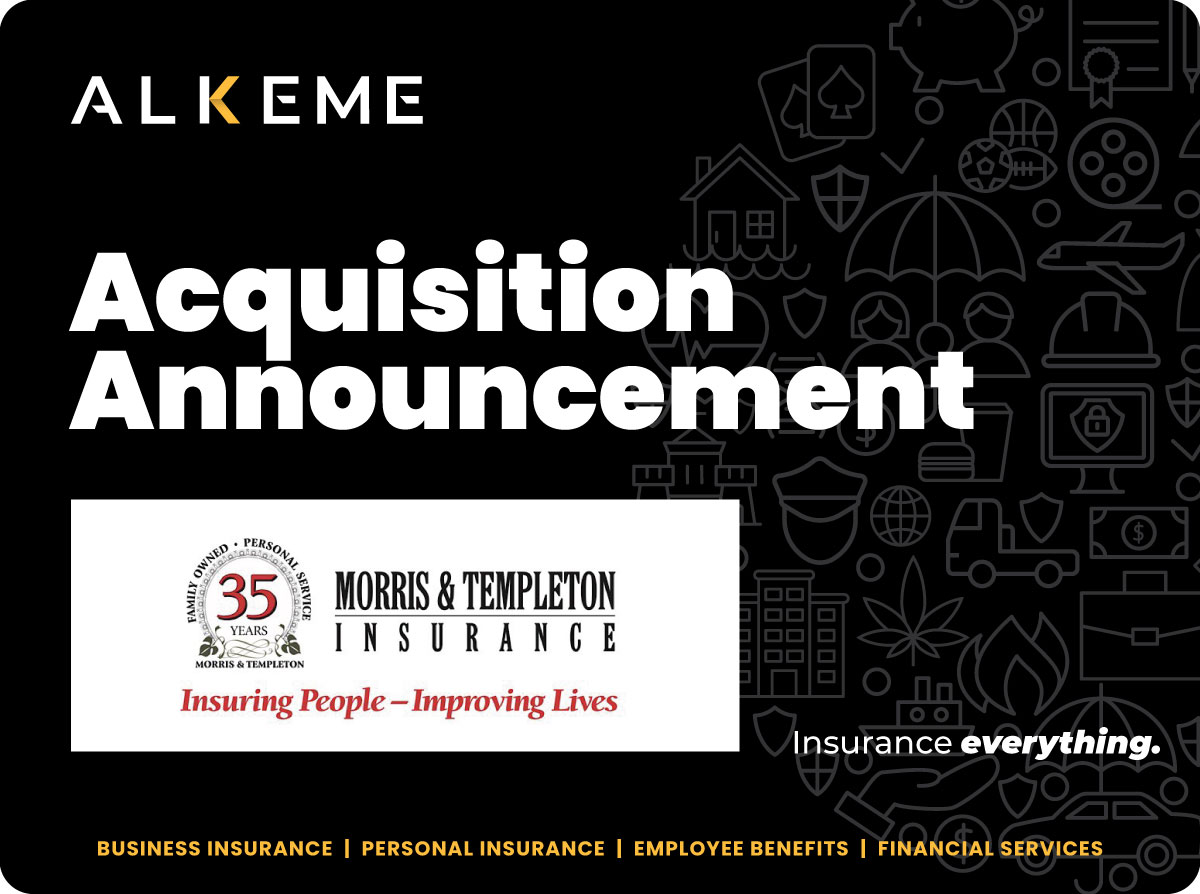In the dynamic world of amateur sports, ensuring the safety and security of your organization isn’t just about protecting players on the field. It’s also about safeguarding your team, coaches, and volunteers from potential legal pitfalls that can arise from employment-related issues. This is where Employment Practices Liability Insurance (EPLI) steps in, offering a crucial layer of protection against potential legal liabilities. In this blog post, we’ll delve into the essential insights for navigating EPLI in the amateur sports industry, providing valuable guidance for sports organizations, clubs, and leagues.
Understanding EPLI
Employment Practices Liability Insurance (EPLI) serves as a vital safeguard for amateur sports organizations, offering protection against a wide range of employment-related claims. Let’s delve deeper into the intricacies of EPLI to gain a comprehensive understanding of its role in the amateur sports industry:
- Definition and Coverage: EPLI is a specialized form of insurance designed to shield organizations from the financial repercussions of employment-related claims. This coverage typically includes claims of wrongful termination, discrimination, harassment, retaliation, and other employment-related grievances. It extends to legal fees, settlements, and judgments arising from such claims, providing a crucial financial safety net for amateur sports organizations.
- In-depth Explanation: EPLI coverage operates on a claims-made basis, meaning it covers claims that are made and reported during the policy period. It’s important to note that EPLI does not cover intentional acts of wrongdoing or criminal behavior. Additionally, coverage may vary depending on the specific policy and insurer, so it’s essential for organizations to carefully review their policy terms and exclusions.
- Key Terms and Concepts: To navigate EPLI effectively, it’s crucial to familiarize oneself with key terms and concepts related to employment practices liability. These include:
- Wrongful Termination: The unjust dismissal of an employee, often in violation of employment contracts or anti-discrimination laws.
- Discrimination: The unfair treatment of individuals based on protected characteristics such as race, gender, age, disability, or sexual orientation.
- Harassment: Conduct that creates a hostile or offensive work environment, including verbal, physical, or sexual harassment.
- Retaliation: Adverse actions taken against employees who engage in protected activities, such as reporting discrimination or participating in investigations.
- Importance of EPLI Coverage: Amateur sports organizations, including clubs, teams, coaches, and volunteers, face a myriad of employment-related risks in their day-to-day operations. From managing diverse teams to making hiring and firing decisions, these organizations are susceptible to legal challenges that can arise from misunderstandings, disputes, or misconduct. EPLI coverage provides peace of mind and financial protection, allowing organizations to focus on their mission of promoting sportsmanship, teamwork, and personal development.
By understanding the fundamentals of EPLI and its implications for amateur sports organizations, stakeholders can make informed decisions about risk management and insurance coverage. With the right safeguards in place, organizations can navigate employment-related challenges confidently, safeguarding their reputation and financial stability in the process.
Common EPLI Claims in Amateur Sports
In the realm of amateur sports, employment-related claims can arise from various scenarios, posing significant challenges to organizations. Here’s a detailed exploration of some common EPLI claims encountered in the amateur sports industry:
- Wrongful Termination: One of the most prevalent EPLI claims in amateur sports involves allegations of wrongful termination. Coaches, staff members, or volunteers may claim that they were terminated unfairly or without just cause. Whether it’s due to performance issues, personality conflicts, or organizational restructuring, wrongful termination claims can result in legal disputes that can damage the reputation and financial stability of the organization.
- Discrimination: Discrimination based on factors such as gender, race, age, or disability is another frequent concern in the amateur sports arena. Organizations may face allegations of discriminatory practices in hiring, promotion, or treatment of players, coaches, or staff. Failure to address and prevent discriminatory behavior can lead to costly legal battles and tarnish the organization’s image as an inclusive and equitable environment for all participants.
- Harassment and Bullying Allegations: Instances of harassment or bullying within teams or clubs can give rise to EPLI claims against amateur sports organizations. Whether it’s verbal abuse, physical intimidation, or cyberbullying, such behavior can create a hostile environment that undermines the well-being and morale of athletes, coaches, and staff. Prompt and decisive action is essential to address these allegations and prevent further harm.
- Retaliation Claims: Employees or volunteers who speak out against perceived injustices or report misconduct may fear retaliation from the organization. Retaliation claims arise when individuals experience adverse actions, such as demotion, harassment, or termination, in response to their whistleblowing or exercising their legal rights. Protecting whistleblowers and fostering a culture of transparency and accountability is crucial to prevent retaliation claims and maintain trust within the organization.
Selecting the Right EPLI Coverage
Choosing the appropriate Employment Practices Liability Insurance (EPLI) coverage for amateur sports organizations requires a thoughtful assessment of various factors to ensure comprehensive protection. Let’s explore how the size and structure of your organization, budget constraints, and specific risks influence the selection of EPLI coverage:
-
Size and Structure of the Organization:
- Team Size: The number of employees, coaches, volunteers, and participants within your organization can impact the extent of EPLI coverage needed. Larger organizations with more personnel may face a higher risk of employment-related claims and may require broader coverage to mitigate potential liabilities.
- Organizational Structure: The hierarchical structure and management practices of your organization can also influence EPLI needs. Complex organizations with multiple layers of management and decision-making may require specialized coverage to address potential risks associated with organizational dynamics and interactions.
-
Budget Constraints:
- Premium Costs: EPLI premiums can vary based on factors such as coverage limits, deductible amounts, and the insurer’s pricing model. Organizations must balance their budgetary constraints with the level of coverage needed to adequately protect against potential liabilities. Exploring different coverage options and negotiating premiums with insurers can help organizations find a cost-effective solution without compromising on protection.
- Coverage Limits: While it’s tempting to opt for the lowest premium option, organizations must carefully evaluate coverage limits to ensure they provide sufficient protection. Underestimating coverage needs can leave organizations vulnerable to substantial financial losses in the event of a large-scale employment-related claim.
-
Specific Risks and Exposure to Claims:
- Nature of Activities: The nature of the activities and operations conducted by your organization can influence the types of employment-related risks faced. For example, organizations involved in high-contact sports or youth development programs may face unique risks related to player safety, supervision, and interactions with minors.
- Past Claims History: Organizations with a history of employment-related claims may be perceived as higher risk by insurers, potentially affecting premium rates and coverage options. Conducting a thorough review of past claims and implementing corrective measures can help mitigate future risks and demonstrate proactive risk management to insurers.
-
Risk Assessment and Mitigation Strategies:
- Risk Assessment: Conducting a comprehensive risk assessment can help organizations identify potential areas of vulnerability and prioritize EPLI coverage needs. This assessment may involve evaluating internal policies and procedures, conducting employee training programs, and reviewing past incidents or grievances.
- Mitigation Strategies: Implementing proactive risk mitigation strategies, such as establishing clear employment policies, conducting regular training on harassment prevention and diversity awareness, and maintaining accurate documentation of employment-related decisions, can reduce the likelihood of claims and demonstrate a commitment to best practices to insurers.
By carefully considering the size and structure of the organization, budget constraints, and specific risks faced, amateur sports organizations can select the right EPLI coverage to effectively protect against potential employment-related liabilities. Investing in comprehensive coverage and proactive risk management measures can safeguard the organization’s reputation, financial stability, and long-term success in the competitive landscape of amateur sports.
Legal Considerations and Compliance
Navigating the legal landscape surrounding employment practices in the amateur sports industry requires a solid understanding of relevant laws and regulations. Compliance with these laws is essential to mitigate the risk of employment-related claims and ensure the fair and equitable treatment of all participants. Let’s explore some key legal considerations and compliance measures for amateur sports organizations:
-
Title VII of the Civil Rights Act
:
- Title VII prohibits employment discrimination based on race, color, religion, sex, or national origin. Amateur sports organizations must adhere to Title VII’s provisions in all aspects of employment, including hiring, promotion, compensation, and termination.
- Compliance with Title VII requires organizations to establish non-discriminatory hiring practices, provide equal opportunities for advancement, and promptly address any allegations of discrimination or harassment in the workplace.
-
Americans with Disabilities Act (ADA):
- The ADA prohibits discrimination against individuals with disabilities in employment, public accommodations, transportation, and other areas of life. Amateur sports organizations must ensure accessibility and reasonable accommodations for individuals with disabilities in both employment and participation in sports activities.
- Compliance with the ADA may involve making facilities and programs accessible, providing reasonable accommodations for employees and participants with disabilities, and ensuring inclusive policies and practices.
-
Age Discrimination in Employment Act (ADEA):
- The ADEA prohibits employment discrimination against individuals who are 40 years of age or older. Amateur sports organizations must refrain from age-based discrimination in hiring, promotion, termination, and other employment practices.
- Compliance with the ADEA involves implementing non-discriminatory policies and practices, promoting a culture of inclusivity and diversity, and avoiding age-related stereotypes or biases in decision-making.
-
Other Applicable Laws and Regulations:
- In addition to federal laws such as Title VII, the ADA, and the ADEA, amateur sports organizations may also be subject to state and local laws governing employment practices. It’s essential to stay informed about relevant laws and regulations applicable to your organization’s location and operations.
- Compliance with these laws may require ongoing training for employees and volunteers, regular reviews of employment policies and procedures, and collaboration with legal counsel to address any compliance issues or concerns.
-
Risk Management and Legal Compliance:
- Implementing effective risk management strategies is essential for amateur sports organizations to maintain legal compliance and mitigate the risk of employment-related claims. This may include establishing clear policies and procedures, conducting regular training on diversity, inclusion, and harassment prevention, and maintaining accurate documentation of employment-related decisions.
- Proactive risk management not only helps organizations avoid legal disputes but also fosters a positive and inclusive environment for all participants, enhancing the organization’s reputation and long-term success.
By prioritizing legal compliance and implementing proactive risk management strategies, amateur sports organizations can navigate the complex legal landscape surrounding employment practices with confidence. Staying informed about relevant laws and regulations, fostering a culture of inclusivity and diversity, and partnering with legal experts when needed are crucial steps to ensure the fair and equitable treatment of all participants in the amateur sports industry.
Understanding EPLI and taking proactive steps to mitigate risks, amateur sports organizations can safeguard their teams, coaches, and volunteers while promoting a positive and inclusive environment for all involved. Stay tuned for more valuable insights on navigating EPLI and ensuring the success of your organization in the competitive world of amateur sports.
Share this article
Follow us
Latest articles
July 27, 2024
July 27, 2024




